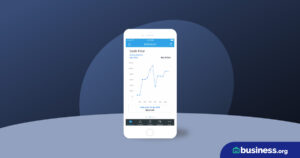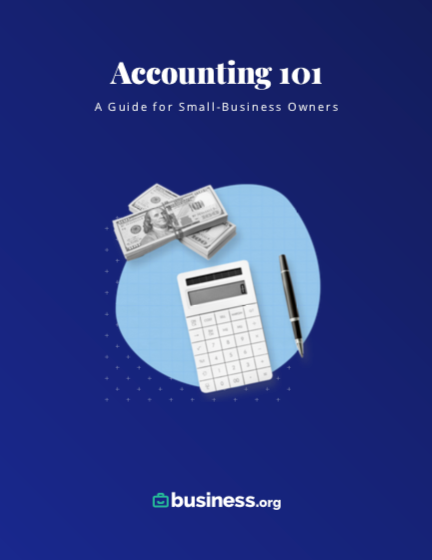💸 See if your business qualifies for a tax credit worth up to $26k per employee. 📞 Call Now: 855-979-9597
The Best QuickBooks Products for Small Businesses 2023
Data as of 12/12/22. Offers and availability may vary by location and are subject to change.
We are committed to sharing unbiased reviews. Some of the links on our site are from our partners who compensate us. Read our editorial guidelines and advertising disclosure.
The bottom line: QuickBooks Online is the best small-business QuickBooks product for accounting, especially for businesses that want easy collaboration with multiple users.
As a cloud-based accounting solution, QuickBooks Online is ideal for small businesses that need remote accounting access. And with four plans, it’s scalable for small businesses that want to add features like bill management as they expand.
But if QuickBooks Online isn’t a good fit for you, QuickBooks Self-Employed is a cheaper, less fully featured version of QuickBooks Online for freelancers. If you prefer a desktop version of QuickBooks Online, QuickBooks Premier Plus and QuickBooks Enterprise are solid choices for midsize and large businesses.
QuickBooks offers two main types of accounting software for small businesses: cloud-based software and desktop-based software.
Cloud-based software
The QuickBooks cloud-based products are QuickBooks Online and QuickBooks Self-Employed.
You can access cloud-based software from any web-enabled device—your data isn’t tied to one location but stored on an external server for easy access. QuickBooks’ online software costs a monthly fee, not an annual one.
Online software works best for small-business owners who don’t own a desktop computer, travel frequently for work, and like the flexibility of paying for a service each month instead of as a lump annual sum. QuickBooks Online plans also allow for up to 25 users, which is more than most desktop plans allow.
Desktop-based software
QuickBooks Desktop includes QuickBooks Premier and Enterprise. You download these software programs directly to your desktop computer.
If you want to access financial data remotely, you usually have to pay an additional fee for offsite hosting. QuickBooks Desktop plans also cost an annual fee per user, and most plans only allow for up to five users.
Past desktop users could choose between a one-time-purchase QuickBooks Desktop software (good for three years) or an annually renewing subscription. But as of 2022, QuickBooks Desktop’s single-purchase option has been discontinued. Now, all QuickBooks Desktop plans renew on an annual basis—you do not have the option to pay just once for three years of use.
Desktop-based software programs like QuickBooks Enterprise work well for business owners with limited internet access, such as businesses that depend on metered satellite internet.
QuickBooks for desktop also has a more complicated interface than QuickBooks’ online software. If you’re already familiar with business financials (including if you’re an accountant), QuickBooks Desktop plans give you heftier fiscal reports and more complex accounting features.
By signing up I agree to the Terms of Use and Privacy Policy.
QuickBooks Online: Best overall
Data as of 12/12/22. Offers and availability may vary by location and are subject to change.
QuickBooks Online is the most versatile and well-rounded of the QuickBooks suite of products. Since it’s cloud based, QuickBooks Online is easy to access from any phone, tablet, or laptop. And if you frequently work remotely or travel to different job sites, QuickBooks Online’s fantastic mobile app will let you track mileage, send invoices, accept client payments, and check financial reports on the go.
As an extremely popular accounting solution, QuickBooks Online integrates with hundreds of the best third-party financial apps, from payroll companies like Gusto to point-of-sale systems like Square. Plus, with four plans, QuickBooks Online has a plan and price point for most small businesses.
QuickBooks Online’s most affordable plan, QuickBooks Simple Start, costs $25 a month and includes one user plus accountant access. And its most expensive plan, QuickBooks Advanced, starts at $200 a month and lets you add up to 25 users—that’s 20 more than most QuickBooks Desktop plans. (For a more thorough comparison of QuickBooks Online versions, check out the plan comparison tables in our in-depth QuickBooks Online review.)
When you sign up for a QuickBooks Online plan, you have two choices: activating a 30-day free trial or subscribing for three months at 50% off. If you choose one choice, you waive the other.
While we love QuickBooks Online’s accessibility, low learning curve, and simple scalability for multiple business types and sizes, it’s one of the pricier cloud-based accounting solutions. (In comparison to QuickBooks’ $25 starting price, Zoho Books and FreshBooks both start at $15 a month, Xero starts at $12 a month, and Wave Accounting is free for life.) If you’ve just launched your first small business and want to minimize expenses, QuickBooks Online might not be the best choice.
QuickBooks Self-Employed: Best for tax-conscious freelancers
Data as of 12/12/22. Offers and availability may vary by location and are subject to change.
QuickBooks Self-Employed shares many of QuickBooks Online’s benefits. As a cloud-based bookkeeping solution, it’s easy to use on the go: you don’t have to wait until you’re in front of the computer to check crucial financial data or enter a bill or receipt. But the most important aspect of QuickBooks Self-Employed for contractors, freelancers, and sole proprietors are its tax features.
For example, the app includes built-in mileage tracking, which is crucial for traveling freelancers who claim mileage or car expenses as a key tax deduction. The app also scans receipts and tracks expenses, which the software then sorts by tax write-off category. Plus, QuickBooks Self-Employed syncs with TurboTax (which is also owned by Intuit) to make tax filing a little simpler.
But if you want more than basic bookkeeping and tax deduction features, QuickBooks Self-Employed likely won’t work for you. Unlike the other QuickBooks plans (including QuickBooks Online), QuickBooks Self-Employed doesn’t have the extensive accounting tools QuickBooks is known for.
In particular, you can only generate annual financial reports, not month-to-month reports, which complicates making wise financial decisions that benefit your business. QuickBooks’ self-employed solution is also more expensive than some other self-employed accounting software—and it has fewer features, too. (Crucially, its invoices are fairly standard and not very customizable.) If you want to do more than file taxes, even as a sole proprietor, QuickBooks Online is honestly a better fit.

With plans starting at $15 a month, FreshBooks is well-suited for freelancers, solopreneurs, and small-business owners alike.
- Track time and expenses
- Create custom invoices
- Accept online payments
QuickBooks Premier Plus: Best for specific industries
Data as of 12/12/22. Offers and availability may vary by location and are subject to change.
*Subscription renews annually unless canceled by customer.
QuickBooks Premier Plus and Enterprise offer QuickBooks’ only industry-specific plans. With either QuickBooks version, you can choose one of six accounting plans tailored to certain types of businesses:
- General businesses
- Retail businesses
- Nonprofits
- Manufacturing and wholesale businesses
- General contractors
- Professional services
If you choose an industry-specific plan, you’ll get thorough financial reports customized to your industry. (The general business version still includes excellent reports—they’re just more broad.) For instance, the general contractor plan includes job costing and reports that organize costs by vendor. The wholesale version breaks down profitability by product, and the nonprofit version lets you generate donor contribution summaries and end-of-year donation statements.
You can also collaborate with up to five users with QuickBooks Premier Plus. As with all QuickBooks Desktop plans, each additional user costs an annual fee—if you add all five users to your account, you’ll pay around $2,750 a year. (If collaboration without extra costs is important to you, providers like Xero include unlimited users with each plan.)
All QuickBooks plans—even plans limited to one user—include free accountant access. You can work directly with a certified QuickBooks accountant (a.k.a. QuickBooks ProAdvisor), but most accountants should be familiar with both QuickBooks Desktop and QuickBooks Online.
Along with its higher price, QuickBooks Premier Plus has the same drawbacks as QuickBooks’ other desktop software. Most importantly, it’s definitely harder to learn and use than any QuickBooks Online product, so non-accountants will face a steep learning curve. And while the QuickBooks Desktop mobile app is fine, that’s really all it is—fine. For general contractors who travel between job sites and need fast, on-the-go account access, a QuickBooks Online plan could suit better.
QuickBooks Enterprise: Best for big businesses
Data as of 12/12/22. Offers and availability may vary by location and are subject to change.
*Plan automatically renews annually at a higher price unless canceled by the customer.
QuickBooks Enterprise offers around 200+ industry-specific reports to Premier’s 150+ financial reports. It also includes more advanced customizations and inventory management features. And with up to 40 users, it works best for big businesses that emphasize financial collaboration and can shoulder the higher cost of an enterprise-level solution.
According to the QuickBooks site, individual businesses interested in Enterprise can work out a customized pricing solution that saves them some money. But without any sort of discount, and if you add all 40 users to your account, you’re looking at more than $52,000 a year.
Most midsize businesses can’t afford to (and don’t need to!) spend that much cash on accounting software. You can infer this from the plan's name alone, but with a cost that high, Enterprise’s price is best suited to enterprises. Still, bear in mind that with only 40 users and a focus on accounting, Enterprise is far from a total enterprise resource planning (ERP) solution.
In other words, QuickBooks Desktop Enterprise doesn’t have enough features for international enterprises, and it doesn’t have a low enough cost to make it suitable for small and midsize businesses either. It might work well for some big businesses interested in industry-specific software and good customer service, but that’s about it.
The takeaway
QuickBooks Online is easily the best QuickBooks product for small-business owners who want affordable on-the-go accounting. (Don’t just take our word for it—Intuit itself encourages users to switch from QuickBooks Desktop to QuickBooks Online.)
But if you don’t think QuickBooks Online will work for you, QuickBooks does have other accounting software products:
- QuickBooks Self-Employed’s three plans give freelancers basic bookkeeping features, including mileage tracking, quarterly tax estimation, and tax optimization assistance.
- QuickBooks Desktop Premier Plus offers thorough reporting for midsize to large businesses running on a Windows operating system.
- QuickBooks Desktop Enterprise is a hefty accounting solution for larger companies. Nonprofits, construction companies, accountants, manufacturers, and retail businesses can all take advantage of its industry-specific plans.
Want to add another QuickBooks product to your accounting software? QuickBooks’ payroll solutions integrate perfectly with both QuickBooks Online and QuickBooks Desktop.
Related reading
QuickBooks products FAQ
There are six main QuickBooks products for small, medium, and large businesses. The most popular cloud-based QuickBooks program is QuickBooks Online, a browser-based system for small-business owners who want a straightforward approach to bookkeeping and accounting.
QuickBooks’ other cloud-based product, QuickBooks Self-Employed, focuses on freelancers and contractors who want to maximize end-of-year tax-write offs. It works best for self-employed business owners who file their taxes with TurboTax, another Intuit product.
QuickBooks also offers several desktop versions of its cloud-based accounting software, including QuickBooks Desktop Premier Plus and QuickBooks Enterprise.
Most small businesses should try QuickBooks Online. It has four plans, which means businesses can scale up to plans with more features and users as they grow. Its mobile app is great for on-the-go accounting and bookkeeping. And even its basic plan has more accounting tools than many competitors, including built-in receipt scanning, expense management, 1099 contractor management, and extensive financial reporting.
What happened to QuickBooks Pro Plus?
QuickBooks Pro Plus was QuickBooks' least expensive and least customizable desktop-based plan. As of 2023, you can still purchase QuickBooks Pro Plus, but only if you reach out directly to QuickBooks' sales team. If you contact the sales team, they'll most likely try to sell you on QuickBooks Online rather than a desktop Pro subscription.
Is there a better accounting product than QuickBooks?
QuickBooks Online is one of the best accounting products for small businesses. But whether it's the best accounting software for you depends on what accounting features your business needs and how much you want to spend on accounting software.
For instance, while QuickBooks offers some of the most fully featured accounting programs, most of its products cost more than comparable accounting solutions for small businesses. Its invoices aren’t very customizable, and you can’t use any versions of QuickBooks to interact with customers the same way you can with FreshBooks’ or Zoho Books’ client portals.
But there isn’t just one version of QuickBooks—if QuickBooks Online doesn’t work for you, another one of the six different versions of QuickBooks could. Plus, QuickBooks isn’t the only accounting solution in the world—far from it. Plenty of QuickBooks alternatives can meet all sorts of business needs, including your business’s needs.
Disclaimer
At Business.org, our research is meant to offer general product and service recommendations. We don't guarantee that our suggestions will work best for each individual or business, so consider your unique needs when choosing products and services.





